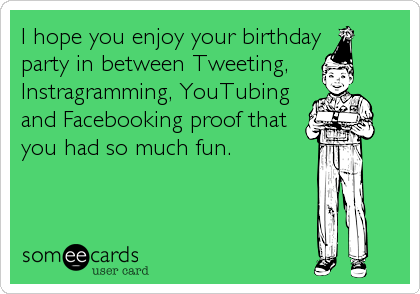 In the first part of the “Digital Dirt” series, we focused on personal information that’s readily accessible online, but not necessarily using a social media platform. This is where internet users can unintentionally dig themselves a deep hole in digital dirt.
In the first part of the “Digital Dirt” series, we focused on personal information that’s readily accessible online, but not necessarily using a social media platform. This is where internet users can unintentionally dig themselves a deep hole in digital dirt.
Lack of Internet Privacy. Facebook has close to 1 billion users, Twitter at 555 million users, and LinkedIn at around 150 million users. With numbers like this, what happens in Vegas will follow you around no matter how “private” your profile. More important than what you post about yourself, is what others post about you. There is no way to completely control what a third party wants to put on your Facebook wall or LinkedIn profile. For example, someone posting pictures of you dancing on a bar as a freshman in college, may sway a conservative company to choose another candidate no matter how long ago that photo was taken. Though companies cannot discriminate based on things like age, gender and ethnicity, there is no guarantee that certain information made available to the public by your profile will not sway a hiring manager one way or another.
Avoid Expressing Extreme Opinions. While the internet has become the main platform for political, religious, and social debates, it is important that, while you are applying to jobs, you refrain from personal posts regarding such issues. You never know who may be looking at your information.
The flipside to having a profile that restricts your opportunities is having a profile that increases your opportunities. Forums and blogs provide a perfect template to help others in need and offer constructive advice. For example, my friend from home (and coincidentally college…Go Blue), started a blog for women about sports and fashion called Cleats and Couture which offers advice and news about her two personal interests outside of law school. Blogs and Forums can show your interests, talents, responsibility to your community and a personal drive to make a difference depending on their topics.
In the few minutes it took you to read this article, I could have gathered enough information about you to make a pretty educated evaluation about the kind of person you look like online. Though it may not be who you really are, it would be a fair assumption according to the digital footprint you have left behind. It is important that you continuously take the time to evaluate your public records and social media profiles to ensure that people viewing your information get an accurate and acceptable view of who you really are.
Author: Jeff Berkowitz

